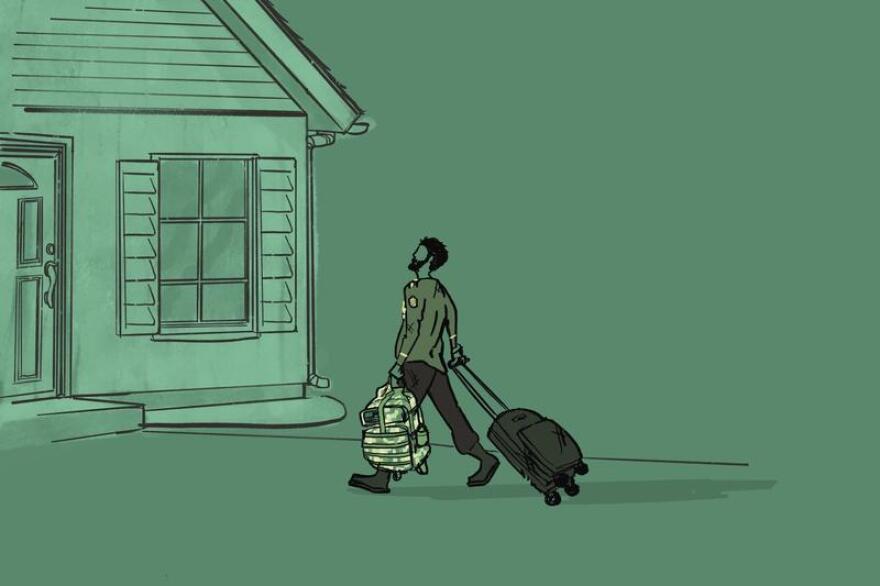St. Clair County and its various taxing districts will be among the biggest recipients of a new state reimbursement pilot program intended to replace property tax revenue, according to a Illinois Department of Revenue report.
In 2015, Illinois quit collecting property taxes from disabled veterans on a tiered-system depending on the severity of each disability. Those with more mild disabilities still pay a portion of their property taxes.
To make up for lost revenue, taxing districts raised rates on other taxpayers, to the dismay of many. In some cases, local taxing districts — like cities, schools, libraries and fire departments — lose out on property tax dollars because they reach a state limit, according to the Department of Revenue.
In 2021, for example, St. Clair County taxing districts lost more than a combined $272 million in assessed value. The reimbursement, passed in this year’s state budget, includes $15 million for various taxing bodies across the state over the next five years.
“There's a disproportionate effect on local property tax values as a result of this exemption,” said Rep. Jay Hoffman, D-Swansea, a lead sponsor of the budget item. “We don’t, in any way, want to take away that property tax exemption. However, we need to have an obligation, as a state, to make sure that taxing districts that this affects are, in some way, made whole.”

In St. Clair County, the equalized assessment value, the dollar amount on which taxes are based, eroded more than 20% from 2010 to 2021, according to the Department of Revenue.
Mascoutah School District 19 and O’Fallon District 90 had the worst erosion of their equalized assessment value because of their proximity to Scott Air Force Base and the number of disabled veterans who live in the area.
“It’s one of those tough things,” said David Deets, the new superintendent at Mascoutah. “We love our relationship with Scott Air Force Base and our military families. We thank them for all they do. But I do think this act had some unintended consequences.”
Deets joined the district earlier this summer. While he wasn’t there when disabled veterans became exempt, he said the accounting books speak for themselves. Mascoutah has lost more than $12 million since 2015.
Carrie Hruby, District 90’s superintendent, said the elementary and middle school district missed out on $2.5 million in revenue last year because the district had nearly 1,500 exempt parcels of land.
“That's direct dollars that come into our budget, and allow us to hire teachers, reduce class sizes, offer special programs, purchase curriculum and all of those things that we're able to do for kids,” Hruby said.
To combat this, the reimbursement program, which is just a pilot program, will start next fiscal year by replacing 45% of what each district lost two years prior. Each year after, the districts will get 90% of the previous two years until fiscal 2028.
“We're very hopeful that it's going to be very well received — that it's going to be something that legislators still continue to fund and place in the budget,” Hruby said.

Looking forward, Deets said he doesn’t have any new projects planned for the state money. Rather, he hopes to offset the higher cost some Mascoutah taxpayers have been paying on debts like the district’s bonds.
Deets’ and Hruby’s districts are not alone. In St. Clair, a number of other school districts, fire departments, library systems and park districts felt the brunt of the exemption. In total, there were 4,708 exempt parcels of land in the county last year.
Madison County taxpayers were also not spared. The Village of Alhambra, population 622 in the northeast corner of Madison, had the highest percentage of property tax erosion at 7.4% in the neighboring county.
Four other counties in the northern part of the state — Rock Island, Lake, Will and DuPage — will also see portions of the state reimbursement money because of their proximity to military installations.
Because this program is just a pilot, Hoffman said he’s hopeful state lawmakers in Springfield will fund something similar in the future.
U.S. Sen. Tammy Duckworth, D-Illinois, hopes a similar provision can make it into the final version of the National Defense Authorization Act, a series of bills passed each year that control the budget of the U.S. Department of Defense.
Duckworth’s provision includes $80 million for what federal lawmakers call “impact aid” that would help offset impacts for school districts near Defense Department facilities, according to her office.
A number of school districts in the area, like Mascoutah and O’Fallon, currently utilize the federal program.
“For Illinois school districts with large populations of students living on military bases, this funding will be critical in ensuring our schools, teachers and students have the resources needed and budget shortfalls are addressed,” Duckworth’s office said.
The $80 million passed in the Senate’s version of this year’s NDAA. It did not pass in the House’s version, however. The two legislative bodies will need to pass the same version for the NDAA to become law.
Correction: St. Clair County taxing districts lost more than $272 million in assessed value two years ago. A previous St. Louis Public Radio report did not clarify the type of value lost.







